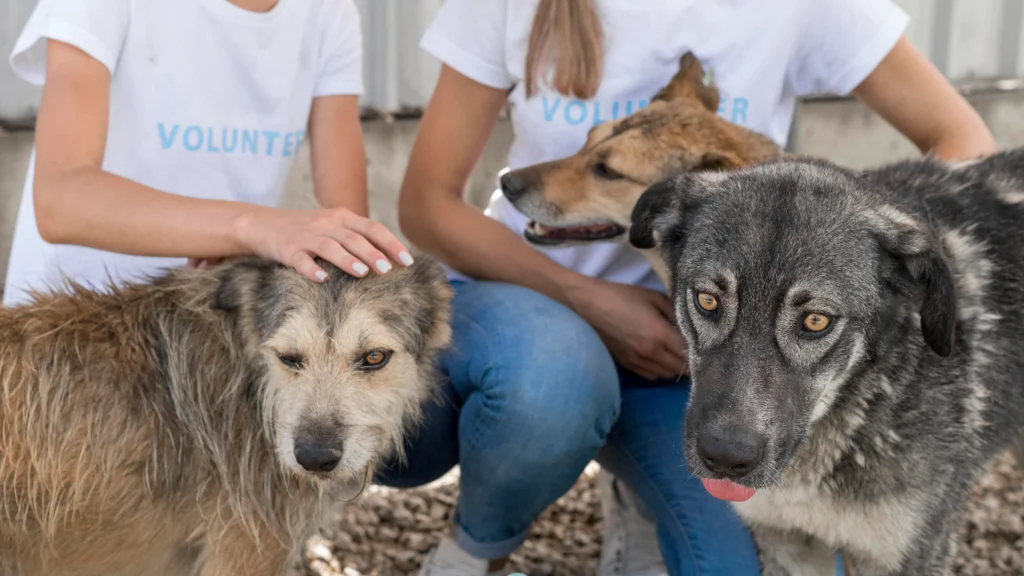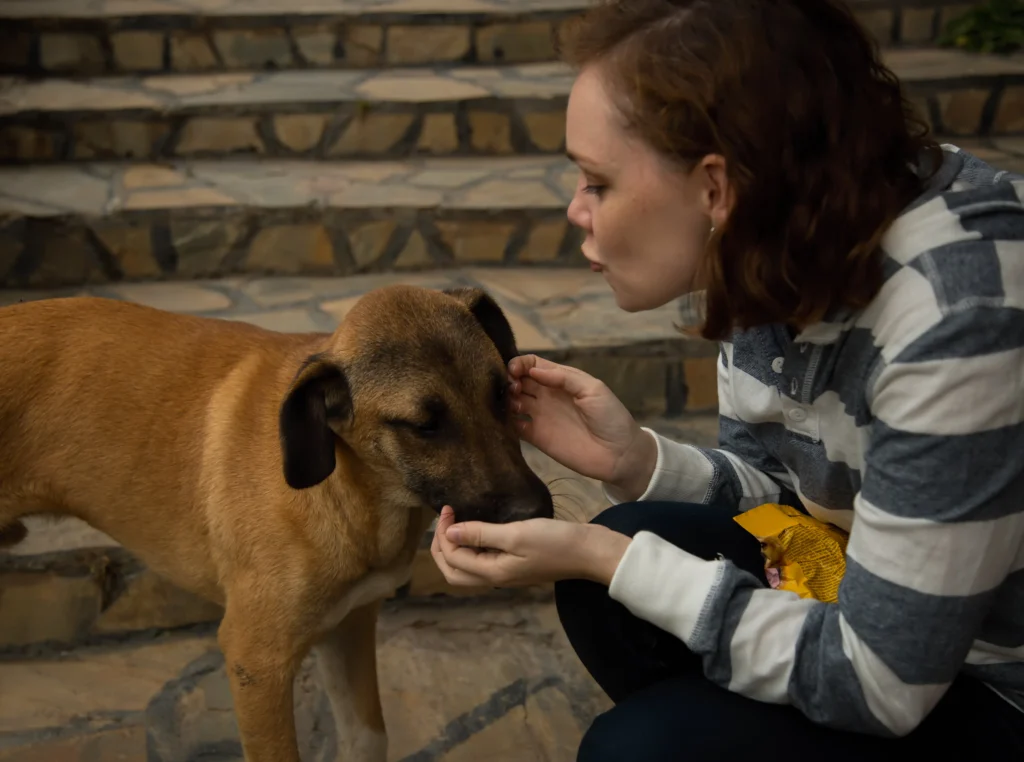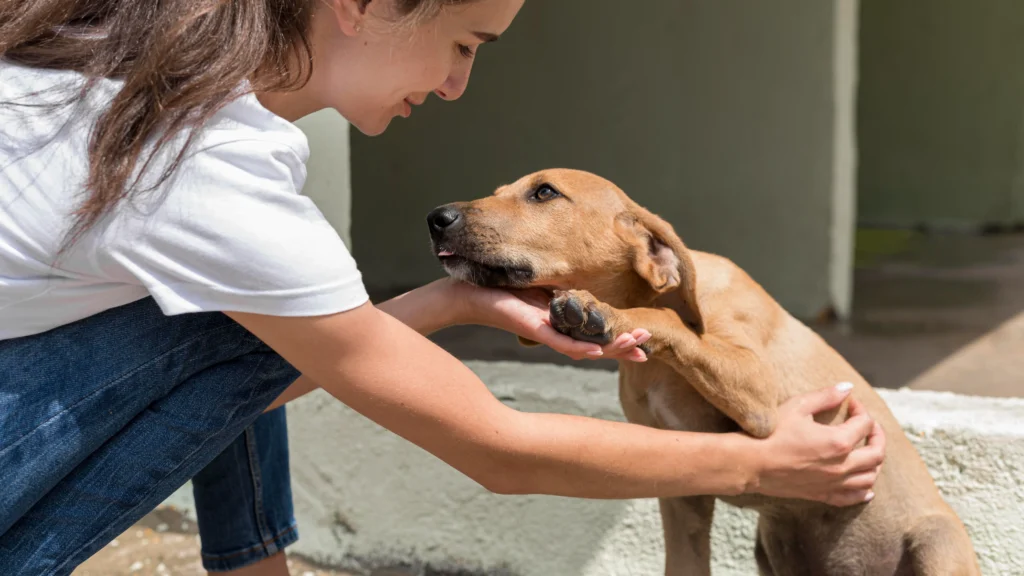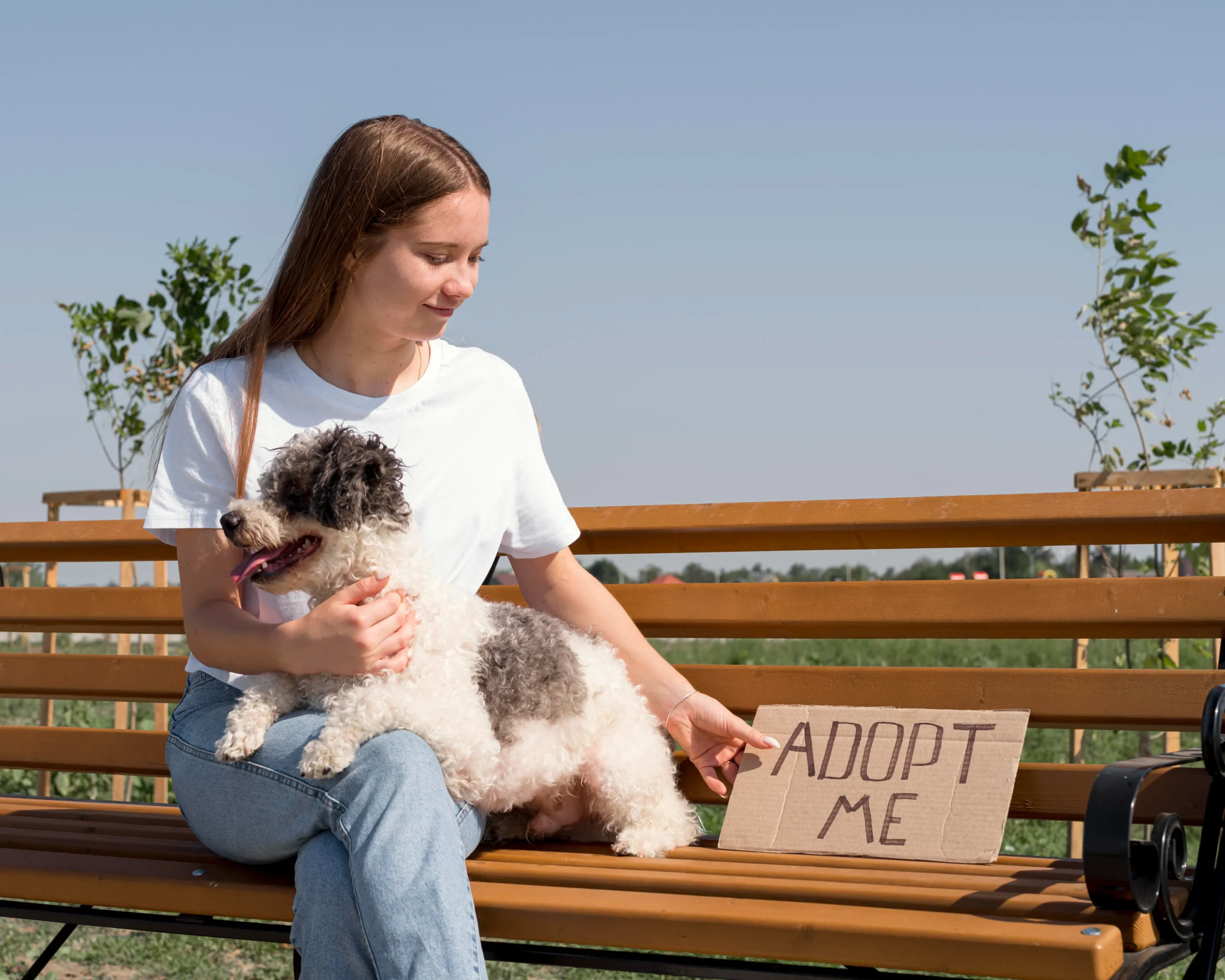Introduction: Understanding the True Cost of Dog Adoption
When considering bringing a furry friend into your home, one of the first questions that comes to mind is “how much does it cost to adopt a dog?” While the joy and companionship a dog brings are priceless, the financial commitment is very real. Dog adoption cost encompasses much more than just the initial adoption fee, and being prepared for these expenses is crucial for responsible pet ownership.
Many prospective pet parents are drawn to adoption because the dog adoption fees are generally lower than purchasing from a breeder. However, the cost of adopting a dog can vary widely depending on where you live, the type of organization you adopt from, and the specific needs of your new furry friend. From shelter adoption fees to ongoing care, understanding the complete picture of pet adoption cost can help you budget appropriately and ensure you’re ready for this important commitment.
In this comprehensive guide, we’ll break down everything you need to know about how much is it to adopt a dog, including five surprising fees that often catch first-time pet owners off guard. Whether you’re considering adoption from a shelter, rescue organization, or elsewhere, this information will help you navigate the financial aspects of dog adoption with confidence.

The Basics: Average Cost to Adopt a Dog in the United States
When asking “how much does dog adoption cost?”, it’s important to understand that prices can vary significantly across the United States. The average cost to adopt a dog typically ranges from $50 to $500, but this is just the beginning of your financial commitment.
Breakdown of Initial Dog Adoption Fees
Shelters and rescue organizations set their dog adoption fees based on several factors:
- Public vs. Private Shelters: Municipal animal shelters often have lower adoption fees (approximately $50-$150) compared to private rescues ($150-$500).
- Age of the Dog: Puppies typically cost more to adopt than adult or senior dogs. While a puppy might come with a $300-$500 adoption fee, an adult dog might cost $100-$300, and a senior dog could be as low as $50-$100.
- Breed and Size: Some breeds, especially those in high demand, may come with higher adoption fees. Similarly, smaller dogs often cost more to adopt than larger ones due to higher demand.
- Geographic Location: Dog adoption cost varies by region. Urban areas typically have higher fees than rural locations. For example, dog adoption fees in New York City might average $300-$500, while in rural areas they might be closer to $50-$200.
- Special Needs: Dogs with special needs or medical conditions might have reduced adoption fees to encourage adoption of these harder-to-place animals.
What’s Typically Included in the Adoption Fee?
When considering the cost of adopting a dog, it’s important to understand what services are included in that initial fee. Most reputable shelters and rescues include:
- Spay/neuter surgery (valued at $200-$500)
- Initial vaccinations (valued at $75-$100)
- Microchipping (valued at $25-$50)
- Basic medical examination (valued at $50-$100)
- Deworming treatment (valued at $20-$50)
- Heartworm testing (valued at $25-$50)
When you factor in these included services, the dog adoption price actually represents significant savings compared to obtaining these services separately after acquiring a dog through other means. This makes the cost to adopt a puppy or adult dog from a shelter a much better value than the sticker price might suggest.
5 Shocking Hidden Costs of Dog Adoption That Most First-Time Owners Miss
While the initial dog adoption fees might seem straightforward, there are several significant costs that first-time pet owners often don’t anticipate. These hidden costs of dog adoption can substantially impact your budget in both the short and long term.

1. Post-Adoption Veterinary Care: The Immediate Health Investment
Even with the basic medical care included in your dog adoption cost, additional veterinary expenses often arise shortly after bringing your new pet home. Many shelter dogs require follow-up care that goes beyond what’s covered in the basic dog rescue adoption cost.
- Additional Vaccinations: $75-$100 for boosters and additional vaccines not included in the initial package
- Flea, Tick, and Heartworm Prevention: $15-$50 monthly
- Unexpected Health Issues: Shelter dogs sometimes have undiagnosed conditions that appear after adoption, potentially costing $200-$1,000+
- Breed-Specific Health Screenings: $100-$500 depending on the tests recommended
According to the American Pet Products Association, pet owners spend an average of $242 on routine veterinary visits in the first year after adoption, not including any special treatments or emergency care.
2. Essential Supplies: Setting Up Your Home for a New Pet
The cost of adopting a dog extends well beyond the shelter adoption fees to include all the items your new pet will need. First-time pet owners are often surprised by how quickly these essentials add up:
- Crate and Bedding: $50-$200 depending on size and quality
- Food and Water Bowls: $10-$50
- Collar, ID Tags, and Leash: $30-$100
- Basic Grooming Supplies: $30-$100
- Toys and Enrichment Items: $50-$100
- Pet Gates or Fencing: $40-$200
- Training Pads (for puppies): $15-$30 per package
- Car Safety Equipment: $25-$100
These initial supply costs typically amount to $300-$700, representing a significant addition to the base cost to adopt a puppy or adult dog.
3. Training and Behavior Modification: The Investment in Good Citizenship

Many adopted dogs, especially those from challenging backgrounds, require professional training or behavior modification that goes far beyond basic obedience. This aspect of dog adoption price often catches new owners by surprise:
- Basic Obedience Classes: $100-$300 for a 6-8 week course
- Private Training Sessions: $50-$150 per hour
- Specialized Behavior Modification: $500-$2,000 for aggression, anxiety, or other serious issues
- Training Tools: $30-$100 for clickers, specialized harnesses, or other equipment
According to a survey by the American Pet Products Association, pet owners spend an average of $123 on training when adopting a dog. However, dogs with specific behavioral challenges may require a much more substantial investment.
4. Insurance and Emergency Funds: Planning for the Unexpected
While not an immediate cost of adopting a dog, responsible pet ownership includes planning for emergencies and ongoing healthcare:
- Pet Insurance: $30-$100 monthly depending on coverage, breed, and age
- Emergency Veterinary Care: $1,000-$5,000+ for serious injuries or illnesses
- Emergency Fund: Financial advisors recommend setting aside $1,000-$2,000 for unexpected pet expenses
The lifetime cost of pet healthcare can be substantial, with emergency veterinary visits averaging $1,500 according to Petplan insurance data. This aspect of dog adoption cost is often underestimated but can be the most critical when emergencies arise.
5. Ongoing Maintenance: The Never-Ending Expenses
Beyond the initial dog adoption fees and setup costs, pet ownership includes continuous expenses that add significantly to the lifetime cost of adopting a dog:
- Food: $250-$700 annually depending on size and quality
- Regular Veterinary Checkups: $200-$400 annually
- Grooming: $30-$90 per session, needed every 4-12 weeks for many breeds
- Toys and Enrichment: $100-$200 annually
- Boarding or Pet Sitting: $25-$85 per day when you travel
- Dental Care: $300-$700 for professional cleaning
- Medications and Supplements: $100-$500 annually, especially for older dogs
According to the American Kennel Club, the average annual cost of dog ownership ranges from $1,500 to $9,900 depending on size, breed, and health status. This ongoing commitment is a significant part of the true cost of adopting a dog that extends well beyond the initial adoption fee.
Comparing Costs: Dog Adoption vs. Buying Cost
Many prospective pet owners wonder whether the dog adoption vs. buying cost comparison favors one option over the other. When examining the financial differences:
Initial Acquisition Costs
- Dog Adoption Cost: $50-$500 including many initial medical services
- Purchasing from a Breeder: $500-$3,000+ for most breeds, with premium or rare breeds costing $5,000+
Included Medical Services
- Adoption: Most dog rescue adoption costs include spay/neuter, vaccinations, and microchipping
- Purchasing: These services typically cost extra when buying from a breeder, adding $300-$800 to the initial expense
Long-Term Health Considerations
- Adopted Mixed-Breed Dogs: Often have fewer genetic health issues due to hybrid vigor
- Purebred Dogs: May have breed-specific health conditions that can increase lifetime veterinary costs
According to a study by the University of California, Davis, purebred dogs cost their owners an average of 34% more in veterinary expenses over their lifetime compared to mixed-breed dogs. This makes the cost of adopting a dog potentially more economical in the long run, even beyond the initial savings on adoption fees vs. purchase price.
Regional Variations: Adoption Cost for Dogs Near Me

Dog adoption fees vary significantly across different regions of the United States. If you’re searching for “adoption cost for dogs near me,” here’s what you might expect in different areas:
Northeast Region
- Urban Areas (NYC, Boston): $300-$500 average dog adoption fees
- Suburban Areas: $200-$350
- Rural Areas: $150-$250
West Coast
- Major Cities (LA, San Francisco): $350-$600
- Suburban Areas: $250-$400
- Rural Areas: $150-$300
Midwest
- Major Cities (Chicago, Minneapolis): $200-$400
- Suburban and Rural Areas: $100-$300
South
- Urban Areas (Atlanta, Dallas): $200-$400
- Rural Areas: $50-$200
These regional differences in how much is it to adopt a dog reflect variations in operational costs, demand, and local economic factors. When researching dog shelter adoption fees in your area, check multiple organizations as prices can vary significantly even within the same region.
Special Considerations: Dog Adoption Price List by Type
The cost to adopt a puppy or adult dog varies not just by location but also by the type of dog you’re adopting. Here’s a general dog adoption price list based on different categories:
By Age
- Puppies (under 1 year): $200-$500
- Adult Dogs (1-7 years): $100-$300
- Senior Dogs (8+ years): $50-$200
By Size
- Small Breeds (under 20 lbs): $200-$500
- Medium Breeds (20-50 lbs): $150-$350
- Large Breeds (50+ lbs): $100-$300
By Special Categories
- Pure or Designer Breeds: $200-$600
- Special Needs Dogs: $50-$200 (often discounted to encourage adoption)
- Bonded Pairs: $150-$450 (often discounted when adopting two dogs together)
By Organization Type
- Municipal Shelters: $50-$200
- Private No-Kill Shelters: $150-$400
- Breed-Specific Rescues: $200-$600
- Foster-Based Rescues: $200-$500
Understanding these variations can help you better estimate how much does dog adoption cost for the specific type of pet you’re looking to bring into your home.
Budgeting for Success: Planning for the Total Cost of Adopting a Dog
To ensure you’re fully prepared for the financial commitment of dog ownership, it’s essential to create a comprehensive budget that accounts for all aspects of the cost of adopting a dog, both immediate and long-term.
First-Year Expenses Checklist
- Initial Adoption Fee: $50-$500
- Additional Medical Care: $200-$500
- Supplies and Equipment: $300-$700
- Training: $100-$500
- Food (First Year): $250-$700
- Grooming (First Year): $100-$1,000
- License and Registration: $10-$100
- Pet Insurance (First Year): $360-$1,200
- Emergency Fund Contribution: $500-$1,000
According to financial experts, the first-year cost of dog ownership typically ranges from $1,500 to $5,000, depending on the dog’s size, breed, and health status. This extends well beyond the initial dog adoption fees that most people focus on.
Annual Budget for Subsequent Years
- Routine Veterinary Care: $200-$400
- Food: $250-$700
- Grooming: $100-$1,000
- Toys and Treats: $100-$200
- Pet Insurance: $360-$1,200
- Boarding/Pet Sitting: $100-$500 (varies by travel frequency)
- Unexpected Medical Expenses: $200-$500 (average)
The American Society for the Prevention of Cruelty to Animals (ASPCA) estimates that the annual cost of owning a dog after the first year ranges from $1,000 to $2,000, not including any major medical emergencies.
Ways to Save on Dog Adoption Cost Without Compromising Care
While the cost of adopting a dog represents a significant investment, there are legitimate ways to reduce expenses without sacrificing your pet’s well-being:
Finding Affordable Adoption Options
- Adoption Events: Many shelters hold special events with reduced dog adoption fees
- Senior Dog Programs: Some organizations offer significantly reduced shelter adoption fees for older dogs
- Clear the Shelters: National adoption events that sometimes waive or reduce adoption costs
- Foster-to-Adopt Programs: Can reduce dog rescue adoption cost by allowing you to “try before you buy”
Saving on Supplies and Services
- Pet Insurance Comparison: Can save hundreds annually by comparing plans
- Wellness Plans: Many veterinary practices offer preventive care packages at reduced rates
- DIY Grooming: Learning basic grooming skills can reduce professional grooming costs
- Bulk Food Purchases: Can reduce the ongoing cost of premium dog food
- Homemade Toys and Treats: Creative alternatives to expensive store-bought items
Community Resources
- Low-Cost Veterinary Clinics: Many communities have affordable options for routine care
- Vaccine Clinics: Offer vaccinations at significantly reduced prices
- Food Banks for Pets: Can help during temporary financial hardships
- Training Resources: Free training videos and community classes can replace expensive private sessions
According to the ASPCA, utilizing these resources can reduce the annual cost of pet ownership by 20-30% without compromising the quality of care your dog receives.
Making an Informed Decision: Is Dog Adoption Right for Your Budget?
Before committing to dog adoption, it’s crucial to honestly assess whether your financial situation can accommodate both the expected and unexpected costs of pet ownership.
Questions to Ask Yourself
- Can I afford the upfront costs? Beyond the basic dog adoption fees, can you manage the initial supplies, medical care, and training?
- Is my monthly budget flexible enough? The ongoing cost of adopting a dog includes regular expenses for food, preventive care, and routine supplies.
- Do I have emergency savings? Unexpected veterinary expenses can quickly reach thousands of dollars.
- How stable is my income? Dog ownership is a 10-15 year commitment during which your financial situation may change.
- Have I researched breed-specific costs? Some breeds have significantly higher grooming, food, or medical expenses.
Red Flags That Suggest You May Not Be Financially Ready
- You’re currently struggling to meet your own basic needs
- You have no emergency savings
- You’re relying on credit cards for regular expenses
- Your employment situation is unstable
- You can’t afford pet insurance or an emergency fund
According to financial advisors, pet ownership should ideally represent no more than 3-5% of your monthly budget. If the projected cost of adopting a dog would exceed this threshold, it might be wise to wait until your financial situation improves.
Conclusion: The True Value of Dog Adoption
When considering how much does it cost to adopt a dog, it’s important to remember that the financial investment, while significant, pales in comparison to the emotional returns. Dogs provide companionship, improved mental health, increased physical activity, and unconditional love that enriches our lives immeasurably.
The dog adoption cost, from initial fees through lifetime care, represents one of the best investments many people will ever make. By understanding and planning for these expenses, you can ensure that your adoption journey starts on solid financial footing, setting both you and your new furry friend up for years of happiness together.
Whether you’re looking at a $50 senior dog from a rural shelter or a $500 puppy from a specialized rescue, the value of that relationship extends far beyond the numbers on your bank statement. The key is to enter into dog ownership with eyes wide open to both the costs and the rewards.
If you’re still exploring pet options and want to learn more about different breeds and their specific needs, check out our comprehensive dog breed guides on PetsMemes.com to find the perfect match for your lifestyle and budget.
Resources for Prospective Dog Adopters
For more information on dog adoption costs and responsible pet ownership, these trusted resources can provide valuable guidance:
- American Society for the Prevention of Cruelty to Animals (ASPCA)
- The Humane Society of the United States
- PetFinder’s Adoption Information
- Best Friends Animal Society
- AKC’s Guide to Responsible Dog Ownership
Remember that the journey of dog adoption is both a financial commitment and an emotional one. By preparing adequately for the costs involved, you’ll be able to focus on what truly matters: building a loving, lasting relationship with your new canine companion.
Ready to learn more about pet care? Check out our comprehensive guide to pet nutrition or explore fun training activities that can strengthen your bond with your new dog without breaking the bank.
Frequently Asked Questions About Dog Adoption Costs
How much does it cost to rescue a dog compared to buying from a breeder?
The cost to rescue a dog typically ranges from $50-$500, while purchasing from a breeder usually costs $500-$3,000+. When you factor in the medical services included in most dog rescue adoption costs (spay/neuter, vaccinations, microchipping), adoption represents a significant financial savings.
Are there hidden fees when adopting from shelters?
Most reputable shelters are transparent about their dog shelter adoption fees. However, additional costs may include mandatory training classes for certain breeds, specific equipment requirements, or deposits that may be refundable upon proof of spay/neuter completion if that service isn’t included.
Does pet insurance cover pre-existing conditions from before adoption?
Most pet insurance plans do not cover pre-existing conditions, which is why it’s important to obtain insurance immediately after adoption and to get a thorough veterinary exam to document your pet’s condition at the time of adoption.
Can I get financial assistance for dog adoption fees?
Many shelters offer reduced dog adoption fees for seniors, veterans, or during special promotion periods. Some organizations also offer sponsorship programs where donors cover part or all of the adoption cost for qualifying adopters.
How much should I budget annually after the initial adoption?
Plan to budget $1,000-$2,000 annually for routine expenses after the initial cost of adopting a dog. This amount may be higher for large breeds, dogs with special medical needs, or if you use premium services like doggy daycare or professional training.
Is it less expensive to adopt an older dog?
Yes, the dog adoption price for senior dogs is typically lower, often ranging from $50-$200. Additionally, older dogs are usually already trained and may have more predictable healthcare needs. However, they may require more medical care sooner than a younger dog.
Do purebred dogs cost more to adopt than mixed breeds?
When available through rescue organizations, purebred dogs typically have higher dog adoption fees ($200-$600) compared to mixed breeds ($50-$300). However, these fees are still substantially lower than purchasing the same breed from a breeder.
How can I find the lowest dog adoption costs in my area?
To find the most affordable adoption cost for dogs near you, check municipal shelters first, as they typically have lower fees than private rescues. Also look for adoption events, senior dog programs, and end-of-season promotions when shelters are at capacity.





Leave a Comment